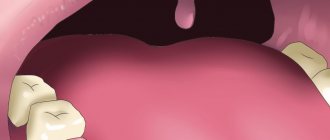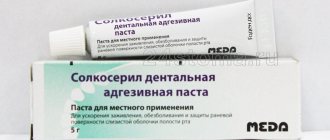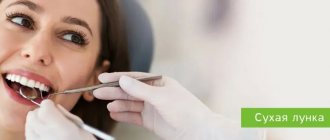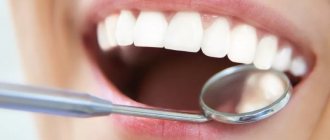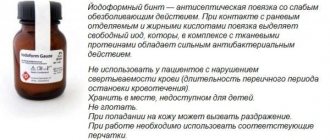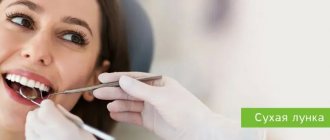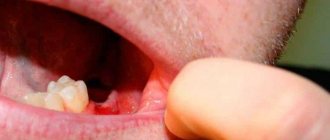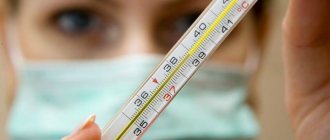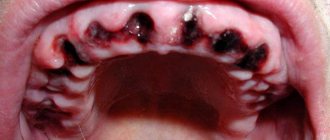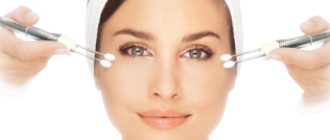Author: Trofimov Andrey Yurievich
What to do after tooth extraction? Every person has gone through this procedure in their life. Doctors always give recommendations, but more often than not, after the pain relief wears off, every second patient forgets about what was told to him in the dental chair. In most cases, after the anesthesia wears off, the pain returns with a vengeance. What should you do if after tooth extraction there is bleeding, the socket, gums become inflamed, or swelling occurs? How to avoid infection and a repeat unpleasant trip to the dentist?
General recommendations
Important restrictions after tooth extraction
Taking medications after tooth extraction
What else should you do after tooth extraction?
Hygiene rules after tooth extraction
What is normal after tooth extraction?
General recommendations
The most important rule in such a sensitive issue will be timely assistance from a qualified specialist. Therefore, if your tooth suddenly starts to hurt badly, this is not a reason to just take a pill and forget about this unpleasant moment, this is a good reason to go to a dental clinic, where you will be given first aid.
With any removal, complex or ordinary, there are a number of rules that must be followed to speed up the healing of the wound, as well as avoid abscesses and other negative consequences.
- Removing the gauze compress. The doctor leaves cotton wool or gauze after tooth extraction. A maximum of one hour after arriving from the dentist, you must carefully remove the protective swab. If it has dried out and stuck to the gum, do not remove it until you soak the area with chlorhexidine, since careless movement can damage or even remove the clot hiding the wound.
- Pain relief. Any discomfort after tooth extraction is a normal process for which you need to be prepared. Ice or any cool item from the refrigerator will help relieve discomfort. The selected item is wrapped in a towel and applied to the sore cheek. In addition to relieving pain, this action will help reduce the chances of swelling. However, this action also has its limitations: ice can be applied several times, making sure to take a break of 5-7 minutes.
- Eating. In the first few hours after tooth extraction, be it a molar or a chewing tooth, you should not eat any food, even if you are very hungry. Over the next 24 hours, the temperature of the food should only be at room temperature. Food should not be too spicy or salty, this can cause additional irritation of the mucous membrane.
- Limit alcohol and smoking. On the first day after tooth extraction, you should refrain from drinking alcoholic beverages. Even a small dose of alcohol can cause blood vessels to dilate, which will ultimately lead to bleeding from the wound. Smoking is permissible, but again at least 2-3 hours after the operation.
- Applying and removing sutures. If sutures were placed at the dental clinic after tooth extraction, the patient is usually invited for a follow-up appointment in a week. In some cases, the sutures dissolve on their own within two weeks.
- Dental treatment. For those who are now closely involved in treating the entire oral cavity, a reasonable question arises: when can the procedures be continued? If the removal was not difficult, then it will be possible to resume meetings with your doctor after 7 days.
Necessary manipulations after tooth extraction:
- We apply something cold for the first 2 hours after surgery, from the outside to the removal site, after wrapping it in a paper napkin. If there is no special medical “cold”, then you can use any frozen product from the freezer.
- Exclude hot food for the first day, chew on the opposite side. Eliminate baths, saunas, hot baths and workouts for 5 days!
- Take medications prescribed by your doctor, usually these are 3 oral medications :
- Antibiotic - Amoxiclav 625 mg (1 tablet 2 times a day), or Tsifran-ST 0.5 mg (1 tablet 2 times a day).
This type of medicine is necessary after tooth extraction in order to protect the mucous membrane damaged after extraction from microbial infection.
- Antihistamine - Suprastin, Zodak, Tavegil (optional) - take according to instructions. These types of medications often have side effects such as drowsiness! Please take this into account when accepting.
This type of medication is necessary so that postoperative swelling goes away much faster.
- NSAIDs (non-steroidal anti-inflammatory drugs) for pain - Ketanov, Ketonal-Duo, Nimesil, Nise, etc. Take as directed. It is not recommended to take aspirin! If you have ever had stomach problems (gastritis, gastric ulcer or duodenal ulcer), it is recommended to take nimesil from this list of drugs! If you currently have such diseases, it is recommended to additionally drink omeprazole 20 mg 1 tablet in the morning while you are taking NSAIDs - this will protect your stomach lining from the side effects of NSAIDs.
This type of medication is necessary after tooth extraction to relieve pain and reduce postoperative inflammation.
4. Make oral baths after meals for 5-7 days with a solution of Chlorhexidine 0.05%. Those. take this solution into your mouth, tilt your head to the side where the operation was performed so that the solution flows into the cavity of the wound, hold it for 30 seconds and spit it out.
5. Application of Metrogil Denta ointment to the postoperative hole, suture line 2-3 times a day, for 5 days. There are several application options: With a cotton swab, a clean finger, or on a gauze ball.
Check your recommendations with the data and take what your doctor has prescribed for you.
And if you have any questions after your tooth extraction, always call us right away. We work around the clock - so we will always advise and advise you.
After 4 months, you can call us and make an appointment for a free consultation with an implant surgeon in order to regain a lost tooth using implant prosthetics, read more about this here.
Important restrictions after tooth extraction
Each patient, in addition to recommendations, should also know what not to do:
- Visit the bathhouse, sauna or swimming pools. Experts also recommend limiting yourself to a short period of time by taking a shower rather than a hot bath.
- Go to the gym and take on heavy physical activity;
- Experiencing stress, which, oddly enough, can seriously affect the wound and even contribute to the opening of bleeding;
- Get into the mouth, in the wound area with dirty hands;
- Touch the site of tooth extraction, be it the tongue or fingers, because this will certainly lead to damage to the clot;
- Brush the removal area with a toothbrush;
- Actively rinse your mouth, because any aggressive external actions can lead to clot disruption and the development of alveolitis.
It is worth noting that representatives of the fair half of humanity are not recommended to remove teeth during the menstrual cycle, because this will only provoke bleeding from the resulting wound.
In the first 24 hours after removal
What to do after tooth extraction during the first 24 hours:
- The gauze pad should be removed from the mouth after 20–30 minutes. In some cases (for example, in patients with arterial hypertension or simply poor blood clotting), it is better to hold it longer - 40-60 minutes. Its purpose is not to absorb blood, but to compress the socket to stop capillary bleeding.
- Do not eat or drink for 2–3 hours. Until a more or less dense clot has formed in the hole, food debris can get into it and cause complications.
- For 3 days, exclude rough, hot, spicy foods from the diet. Rough food, especially products such as crackers, chips, nuts, can get into the socket and cause inflammation. Hot or spicy foods increase the amount of blood flow in the surgical area, which can lead to increased postoperative inflammation and the appearance of pain, swelling, etc. Optimal nutrition after surgery is food that does not irritate or injure the oral mucosa.
- For 3 days, avoid baths, hot tubs, saunas, and solariums. Avoid physical activity and any heating of the body. You can take a shower and wash your hair. But not for long and not with hot water. Under no circumstances should you apply heat to the surgical area. Due to heating, blood flow in the area of the extracted tooth increases, and this can lead to serious complications.
- Do not pick at the hole or try to clean or rinse it. Try not to touch the tooth socket with your tongue. Even if you notice “something abnormal” in the socket of an extracted tooth, it is best to consult a doctor. Trying to clean it yourself usually leads to infection of the socket.
- You cannot rinse the socket area on the first day, use lotions, baths, ointments, compresses, etc., unless your doctor recommends it. Rinsing and bathing on the day of surgery often dissolves and washes away the blood clot.
- Careful oral hygiene. Teeth must be brushed regularly, 2 times a day in those places that are not adjacent to the socket of the extracted tooth. To clean, use a minimal amount of toothpaste (you can use no toothpaste at all) to make it easier to wash off. After tooth extraction, you cannot use an irrigator.
- The use of cold is for the most part justified. A cold compress not only constricts blood vessels and reduces the risk of swelling, but also reduces blood flow in the surgical area and prevents postoperative inflammation from developing. It is best to consult your doctor about the use of cold compresses.
- Patients suffering from diseases of the cardiovascular system must monitor their blood pressure and take appropriate medications. In 90% of cases, the cause of alveolar bleeding, swelling or hematoma is an increase in blood pressure. Therefore, stable blood pressure is a necessary condition for a comfortable postoperative period.
- If your doctor prescribes medications for you, you must take them according to the regimen suggested by the doctor.
- If something bothers you, or you have additional questions about your well-being, first of all contact your doctor.
It is important to understand that the body perceives tooth extraction as an injury and gives an appropriate reaction to it - post-traumatic inflammation. Its nature largely depends on both the volume of intervention and the condition of your body. The purpose of the recommendations and prescriptions that the doctor gives you is precisely the elimination of this inflammation. Therefore, how the postoperative period will proceed, how comfortable and calm it will be, largely depends on you.
Taking medications after tooth extraction
Experienced specialists recommend taking antihistamines. They will help avoid swelling of the cheeks, because in addition to working on allergic reactions, antihistamines also have an anti-edematous effect.
You should not overdo it with medications if the pain is tolerable and tooth extraction was a procedure of ordinary complexity. A little trick that can be remembered for the future is to take an analgesic even before the patient stops feeling the anesthesia administered by the doctor.
As for antibiotics, it is strictly not recommended to take them without a corresponding prescription from the attending physician. In what cases does the surgeon issue a referral for the purchase of necessary medications:
- for difficult removal;
- with the development of the inflammatory process;
- in case of concomitant diseases such as stomatitis or candidiasis.
Why there is bad breath and what to do
The appearance of an unpleasant odor after the removal of a wisdom tooth indicates the development of an inflammatory process. In most cases, the symptom appears 3-4 days after surgery and is accompanied by tissue swelling and pain. In this case, you need to consult a doctor.
Odor may also develop due to lack of hygiene. This increases the risk of inflammatory abs, so you shouldn’t forget about brushing your teeth.
It is worth considering that some medications that doctors use to protect the socket may have a specific odor. As a rule, dentists warn the patient about this situation immediately after the procedure.
Removing a wisdom tooth is a complex procedure, but following all the dentist’s recommendations will help reduce the risk of complications to zero. Our doctors always tell patients in detail the features of the postoperative period and prescribe all prescriptions, including antibiotics and analgesics. All they have to do is follow all the instructions exactly.
Hygiene rules after tooth extraction
The first and important rule will be to limit brushing and rinsing your teeth immediately after surgery. You can start your usual lifestyle with daily brushing of your teeth the next day.
It is worth purchasing a brush with soft bristles at a pharmacy or store in advance, but it is still necessary to clean the area of removal with special care. Irrigator and dental floss are not allowed.
Hole hygiene deserves special attention. Dental surgeons recommend the following method for care:
- take a herbal decoction or a special rinse purchased at the pharmacy into the oral cavity;
- hold it in your mouth for several minutes, without performing any additional actions such as rolling water;
- After cleansing, you should try to refrain from drinking water and food for a couple of hours.
This action will help to avoid inflammatory processes in and around the hole, and will also reduce bleeding. Baths based on an antiseptic, for example, water-based chlorhexidine or furatsilin, will be effective.
What will help relieve swelling?
Are your gums very swollen after tooth extraction? If no more than a week has passed since the procedure, then this is a variant of the norm. As a rule, swelling subsides after 3-5 days, but after extraction of wisdom teeth it can persist for a longer period.
What can be done to reduce swelling? Follow your doctor's recommendations.
- Take prescribed medications. Apply anti-inflammatory gel to the damaged area, gently rinse your mouth with antiseptic solutions, and take painkillers.
- Use a cold compress. Take a bottle of water from the refrigerator, wrap it in a towel or scarf and place it on your cheek for 5 minutes. Compresses can be done several times a day. Cold will help relieve swelling and eliminate pain.
- Follow a gentle diet. After tooth extraction, you should avoid hard and rough foods for a while. It injures damaged tissue and prevents wound healing. Give preference to soups, cereals, purees and yoghurts. Do not use a straw to drink drinks as this may dislodge the blood clot from the socket.
- Sleep on a high pillow. The head should be higher than the body. This ensures the outflow of blood from the inflamed area and helps reduce swelling.

